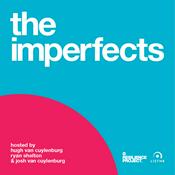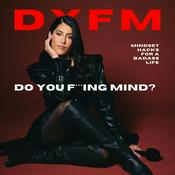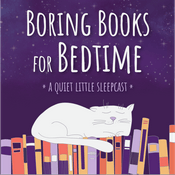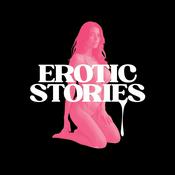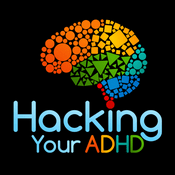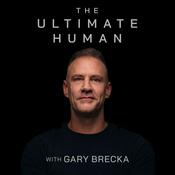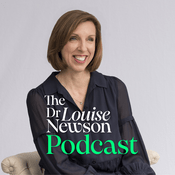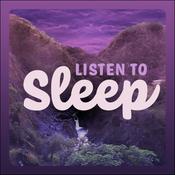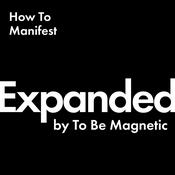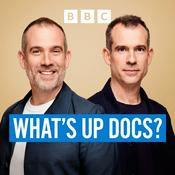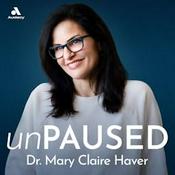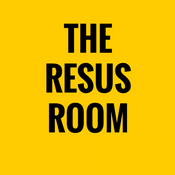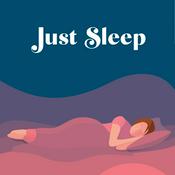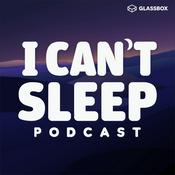42 episodes
- Trauma can take many forms, from single shocking events affecting a whole community to deeply personal experiences that unfold over time during childhood. We’ll explore how different types of trauma, such as traumatic brain injury, post-traumatic stress disorder (PTSD), and more can negatively impact our behaviour, relationships, and resilience later in life. Understanding how it affects us can be one of the first steps toward recovery. In this episode, we will uncover what really happens to the brain and body after trauma and what evidence-based interventions that help people rebuild their lives looks like in practice.
Our guest today is Dr Jan Ewing is a highly respected Clinical Neuropsychologist and Clinical Psychologist with over 40 years of experience specialising in trauma, brain injury, and complex psychological disorders. As a Fellow for the Australian Psychological Society, the Australian Society for the Study of Brain Impairment and the International Society for the Study of Trauma & Dissociation (ISSTD), Jan is recognised internationally for her expertise in understanding how trauma impacts the brain and behaviour. She has trained thousands of mental health professionals across Australia and served for more than 15 years as an educator at the University of Queensland. Jan also sits on the advisory panel for the Blue Knot Foundation, supporting adult survivors of childhood abuse.
In this episode, we dive deep into answering the following thorny questions.
00:00 - Intro
2:30 - How Jan became an expert in trauma recovery?
3:35 - Post Traumatic Stress Disorder (PTSD) and Trauma definitions.
6:30 - What happens to the brain during a traumatic event?
12:00 - How training helps with choosing whether to fight, flight, freeze or faint to survive during a traumatic event?
15:15 - When is it safe for the brain to re-regulate? 17:30 - What are PTSD symptoms? 21:40 - How long does it take to re-regulate the brain?
25:15 - What can we do to support someone after a traumatic event?
29:30 - What is the “window of tolerance” and how does it determine how easily you are triggered by trauma?
32:20 - What is a body memory, and how is it present even when you have amnesia of the trauma? 36:00 - The 3 phases of trauma processing that are part of recovery.
40:45 - How to identify someone has a history of trauma and how to best support them?
46:50 - How to help someone increase their window of tolerance? 48:45 - The different types of trauma.
51:00 - The difference between stress and trauma.
52:10 - Is full recovery possible after a traumatic event?
55:50 - Why is EMDR considered best practice for treating trauma?
59:00 - The role of shame in trauma.
1:01.15 - How can we tackle shame in order to speed up recovery?
1:03.40 - Why avoidance is the biggest barrier to trauma recovery?
1:04.30 - What is Jan’s one wellbeing practice?
Learn more about Jan https://www.linkedin.com/in/jan-ewing-7865712a/
Learn more about Clearhead https://www.myclearhead.com/
Distribution Tags:
mental-health
PTSD
Trauma recovery - Despite living in a world filled with freedom, convenience, and choice, many of us still feel unhappy, lonely, and unfulfilled. Why is that, and what can evolutionary psychology teach us about who we are, where we come from, and what makes us happy? This episode explores how our most basic psychological needs, for connection and for autonomy, shape the way we think, feel, and relate to others. In today’s world, these two needs can sometimes conflict with each other, and this social paradox can have a real impact on our wellbeing.We’ll also discuss how the “social leap” our distant ancestors made from the rainforest to the savannah created a new kind of social intelligence, and how they coped with stressful situations. By understanding how our history plays out in the modern environment, we can shape our lives in ways that help us feel more content, more connected, and better able to manage negative emotions.
Bill's biography:
Our guest today is Bill Von Hippel. After a three-decade career as a psychology professor in the United States and Australia, Bill now writes books and conducts research, publishing over 150 academic articles across a range of psychological topics. His work has been cited over fifteen thousand times in academic literature and widely reported in the media, including The New York Times ‘100 Ideas of the Year’, The Economist, The Australian and more. Bill has been a guest on numerous podcasts, including The Joe Rogan Experience, Diary of a CEO, and Modern Wisdom with Chris Williamson. Bill’s first book, The Social Leap, has been translated into a dozen different languages and received the annual Book Prize from the world’s foremost social psychology society.
00:00 - Intro
02:40 - How Bill became an expert in evolutionary psychology.
03:50 - Evolutionary psychology definition.
05:35 - How deterministic are our genes in shaping our life outcomes?
08:00 - Has our mind evolved to be fit for the modern world or is there an evolutionary mismatch?
10:10 - Types of evolutionary mismatch - Miswanting and Misfeeling.
13:20 - Our main source of unhappiness is the conflict between our needs for connection and autonomy in our relationships.
16:00 - Should we retrain our brains to need less connection, or focus on meeting our connection needs to be happier?
19:10 - Why do successful people still feel lonely and dissatisfied in life?
20:30 - The definition of autonomy in the context of evolutionary psychology.
23:40 - The definition of success.
25:55 - Why do we often feel regret in a world full of choice?
29:25 - How do we limit regret and what is the best way to meet our need for autonomy?
32:10 - Why satificers are happier than maximisers?
34:30 - Why self-control is more about avoiding temptation than resisting temptation?
38:15 - Why, when we get what we want (autonomy), do we lose what we need (connection)?
42:05 - Why we should always optimise for connection over autonomy?
43:45 - Why remote work makes people less happy and less effective at work?
46:45 - Why it is also important to have a phone free policy at work and at schools?
47:45 - Should we legislate phone free policy or return to work policy?
48:45 - Are there people who will need autonomy more than connection?
51:30 - What can you do to make it easy to meet your connection needs in your daily life?
54:00 - How to reframe a threat as a challenge to reduce stress in your life?
57:10 - What is the goal of life?
57:50 - What is Bill’s one wellbeing practice?
Learn more about Bill
https://www.linkedin.com/in/william-von-hippel/
Learn more about Clearhead
https://www.myclearhead.com/ - For most of us, pain subsides fairly quickly as we recover from injury. For some, however, pain persists, making it challenging to return to our normal, full-functioning capacity. In some cases, chronic pain may develop due to stress, or even for unexplained reasons. However, due to the stigma and unconscious bias, individuals can feel too ashamed to ask for support or when they do, made to feel invalidated in their experience of chronic pain. The research shows that recovery and resilience are deeply social processes, and meaningful support can change someone’s ability to cope with pain.
Claire's biography:
Our guest today is Dr. Claire Ashton-James a social psychologist and Associate Professor of Pain Management at The University of Sydney Medical School. Her work uncovers how social relationships influence the experience of pain and vice versa. Her research advocates for the integration of social “treatments” into the management of chronic pain, so that people have the best chance of returning to full capacity and avoid relying solely on pain medications or therapy.
00:00 - Intro
02:10 - How Claire became a social psychologist focused on pain management
04:20 - Definitions of chronic pain and acute pain
09:00 - Common misconceptions about people with chronic pain
12:30 - What Claire did differently after learning about these misconceptions
14:25 - How to support people in your life with chronic pain
16:45 - What workplaces can do to support employees with chronic pain
21:10 - Why social support is a key part of chronic pain management
22:25 - What someone with chronic pain can do if they don’t have a supportive social circle
29:15 - Are peer support groups helpful or harmful for pain management?
33:20 - When social connection can have a negative impact
34:25 - The unconscious biases health professionals may have against chronic pain patients
39:25 - What chronic pain patients can do when they experience invalidation from health professionals
41:55 - How to approach supporting someone struggling with chronic pain
44:05 - Acknowledging that chronic pain can cause social withdrawal
45:05 - What to do if pain prevents you from maintaining social connections
46:10 - Claire’s one wellbeing practice
Learn more about Claire
https://www.linkedin.com/in/claire-ashton-james-b271368a/
Learn more about Clearhead
https://www.myclearhead.com/ - What if leadership wasn’t just about authority, decisions, or overseeing tasks done, but about developing powerful interpersonal relationships to inspire and influence?
In this episode, we will explore how Relational Leadership focuses on cultivating trust and connection. We’ll share practical tips on how to build meaningful relationships and navigate complexity, thus transforming our effectiveness as leaders. Learn how to cultivate leadership that is both empathetic while maintaining a standard of high performance and accountability in your team.
Moira's biography:
Moira Mallon is an expert in seeing beneath the surface and getting to the heart of the problem, which often in organisations is all about people and the dynamics they have with each other. Moira is a certified coach with the International Coaching Federation and for over 20 years has coached hundreds of leaders, including those leading the Christchurch’s post-earthquake rebuild. Her coaching is informed by systemic thinking, emotional development, and transformative tools like The Leadership Circle and a practice in Gestalt Psychotherapy. Whether she’s coaching CEOs, senior executives or rising leaders, Moira brings a fierce belief in the power of human potential.
In this episode, we dive deep into answering the following thorny questions:
00:00 - Intro
02:25 - How Moira became a leadership coach focused on leadership development
04:00 - What the emotional experience of leadership means
05:35 - Defining relational leadership
07:55 - How leaders can prioritise connection over control to create psychological safety
10:15 - The physiology behind helpful and unhelpful coping strategies during times of change
13:50 - How leaders can develop presence within an organisation
16:35 - The two key questions to ask when building connections with your team
18:25 - The importance of emotional control and consistency
20:35 - Managing the tension between employee performance and connection
23:10 - What separates leaders who build trust from those who don’t
26:10 - Modelling authentic leadership and resilience in high-pressure environments
29:10 - Influencing up - creating positive change when a leader lacks self-awareness
32:50 - How to intentionally build connection and trust in hybrid or remote teams
36:15 - How leaders can explore the emotional needs behind employee performance issues
39:00 - What defines a great workplace culture
42:00 - Is it bad culture if you’re clear about high workloads and long hours?
45:30 - How often leaders should communicate during periods of change
48:45 - The influence of indigenous practices on relational leadership
51:00 - How to respect boundaries when building deeper connections
52:45 - Why empathetic conversation is the first step toward relational leadership
55:10 - Moira’s one wellbeing practice - Historically, the unspoken organisational culture meant that your personal issues and any mental health challenges you are experiencing were expected to stay at home. Today, it is increasingly accepted for employees to be more open about their mental health and wellbeing needs in the workplace. However, with the increasing prevalence and severity of mental illness in the community, this presents new challenges for HR and managers to know how to navigate these conversations empathetically while maintaining a focus on the organisation’s performance.
Barry biography:
In today’s episode, we want to focus on our HR audience, and so we have invited special guest host HR professional Lisa Young, who will be interviewing Clearhead’s clinical lead and clinical psychologist Barry Kirker, together they will unpack all the complexity surrounding employee mental health. Barry has 30 years’ experience working with individual clients and organisations across New Zealand and Australia. He undertakes complex mental health assessments, including fitness for work, forensic, and compensation/mental injury assessments, with a thorough understanding of both the clinical and legal aspects involved.
In this episode, we dive deep into answering the following thorny questions.
00:00 – Introduction
01:50 – Lisa introduction
03:50 – Barry introduction
05:30 – What is being covered
08:40 – Definition of mental health
10:00 – What to do when an employee self discloses their mental health challenges to you
13:55 – What to do if you don’t feel equipped to have the conversation?
14:30 – Are there things you shouldn’t say
17:45 – How to assess the safety risk of someone who discloses they have suicidal thoughts
22:00 – What if you can feel your own emotions taking over
23:00 – When to seek professional help
24:00 – How to tell if someone needs more support
25:20 – What to do when you notice someone struggling with their mental health
28:05 – Should you bring up performance issues in a mental health conversation
29:50 – What if the person lacks insight and is dismissive of your concerns
33:50 – Why it’s important to be proactive in having the mental health conversation
34:25 – When an employee blames their mental health at a performance or disciplinary meeting
39:20 – How do you know if a mental health disclosure is genuine
42:00 – What to do when an employee says a performance improvement process negatively impacted their mental health
45:00 – When should you breach the confidentiality of what an employee shared with you
47:00 – How do you deal with the subsequent loss of employee trust
49:40 – How do HR practice self-care and set boundaries on the mental load of supporting others
54:10 – Barry and Lisa’s final takeaway
Learn more about our guest host Lisa Young:
https://www.linkedin.com/in/lisa-young-exceedhr/
Helpful resources:
Resource 1: Meeting Crisis with Care. How HR Can Navigate Mental Health Challenges https://www.myclearhead.com/blog/meeting-crisis-with-care-how-hr-can-navigate-mental-health-challenges/
Resource 2: Mental Heatlh Conversations: Guidance for Leaders: https://www.myclearhead.com/blog/mental-health-conversations-guidance-for-leaders/
Resource 3: Frameworks to Support Difficult Conversations at work: https://www.myclearhead.com/blog/frameworks-to-support-difficult-conversations-at-work/
Learn more about Clearhead
https://www.myclearhead.com/
More Health & Wellness podcasts
Trending Health & Wellness podcasts
About Clear the air
Hosted by Dr Angela Lim, Clearhead co-founder and medical doctor, Clear the Air is a mental health and wellbeing podcast covering those experiences in your life or questions you have that you feel too vulnerable to share with those around you.We speak with experts to share the science behind what you’re experiencing and explore the answers to those questions. Together we get real and raw on the existential questions covering mental health and wellbeing that have puzzled humans for millennia.Follow the podcast to get notified as we drop new episodes monthly.Clearhead is an innovative employee wellbeing platform with a social mission to ensure personalised mental health and wellbeing support is accessible to everyone. Making it easier for you to build self-awareness and be guided to either digital self-help tools or book therapy on the Clearhead platform when and where you need it.Have a burning question about mental health that you want us to answer? Email us at [email protected], or visit our website: www.myclearhead.com
Podcast websiteListen to Clear the air, ZOE Science & Nutrition and many other podcasts from around the world with the radio.net app

Get the free radio.net app
- Stations and podcasts to bookmark
- Stream via Wi-Fi or Bluetooth
- Supports Carplay & Android Auto
- Many other app features
Get the free radio.net app
- Stations and podcasts to bookmark
- Stream via Wi-Fi or Bluetooth
- Supports Carplay & Android Auto
- Many other app features


Clear the air
Scan code,
download the app,
start listening.
download the app,
start listening.




